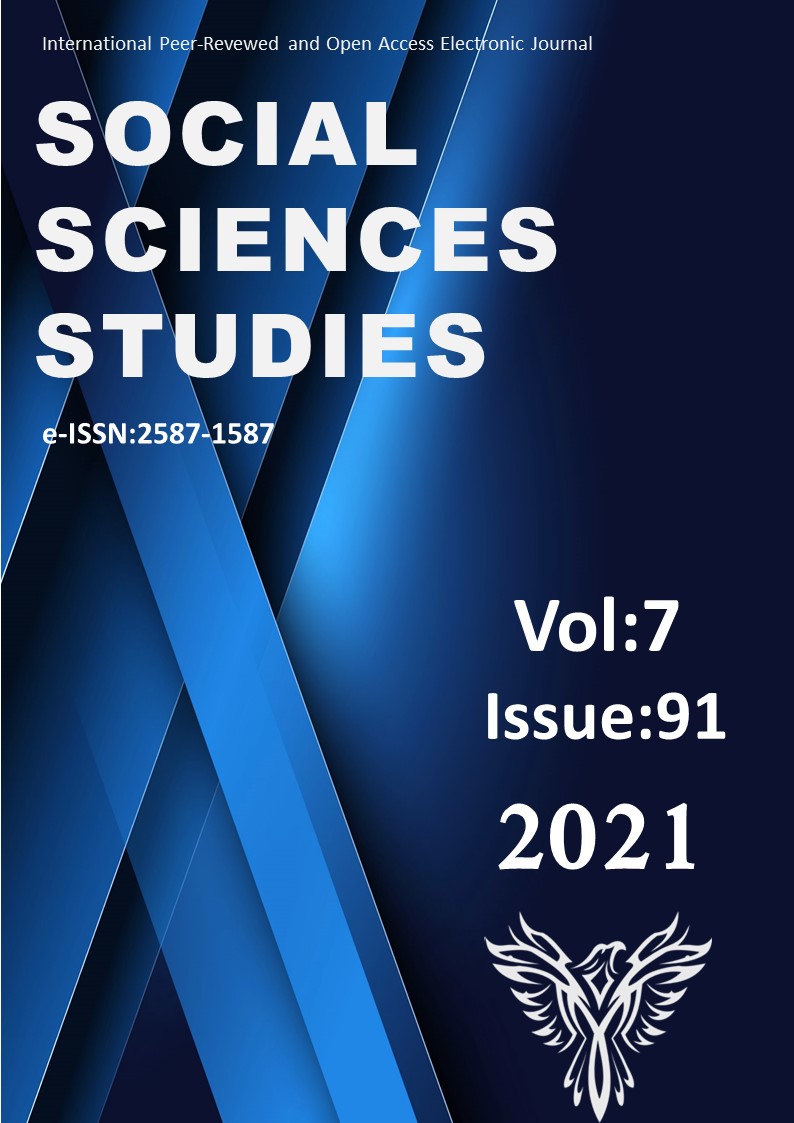Author :
Abstract
Kur’an’ın ezberlenmesine dayalı olarak gerçekleştirilen hafızlık, İslam eğitim geleneğinde köklü ve mühim bir yere sahip bir eğitim türüdür. Günümüzde ülkemizde, yaygın din eğitimi ve din hizmetlerini yürütmekle mükellef olan Diyanet İşleri Bakanlığı’na bağlı Kur’an kurslarında ve Örgün Eğitimle Birlikte Hafızlık Projesi doğrultusunda hafızlık eğitimi verilmektedir. Araştırma örgün eğitimde sürdürülen proje kapsamında hafızlık yapan öğrencilerin psiko-sosyal durumlarını tespit etmeyi amaçlamaktadır. Nicel tarama modelinde olan araştırma için “Hafızlık Eğitimi Psiko-Sosyal Durum Ölçeği” veri toplama aracı olarak belirlenmiştir. Araştırmanın örneklemini Rize ilinde bulunan 4 okulda hafızlık eğitimi alan 120 öğrenci oluşturmaktadır. Veriler SPSS aracılığıyla analiz edilmiştir. Veri analizlerinde tanımlayıcı istatistiksel metotlar, t-Testi, Mann Whitney U Testi ve Kruskal Wallis H testleri uygulanmıştır. Araştırma sonucunda örneklemin psiko-sosyal durumlarının bağımsız değişkenlere göre farklılık arz ettiği tespit edilmiştir.
Keywords
Abstract
Hıfz, which is based on memorizing the Qur'an, is a type of education that has a deep-rooted and important place in the Islamic education tradition. Today, in our country, hıfz training is given in Qur'an courses affiliated to the Ministry of Religious Affairs, which is responsible for carrying out non-formal religious education and religious services, and in line with the Hıfz Project with Formal Education. The research aims to determine the psycho-social status of the students who are hıfz within the scope of the project carried out in formal education. For the research, which is in the quantitative scanning model, the "Memory Education Psycho-Social Status Scale" was determined as the data collection tool. The sample of the study consists of 120 students who receive hafiz training in 4 schools in Rize. Data were analyzed via SPSS. Descriptive statistical methods, t-Test, Mann Whitney U Test and Kruskal Wallis H tests were used in data analysis. As a result of the research, it was determined that the psycho-social status of the sample differed according to the independent variables.





